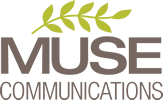Is This Award Real? 5 Clues to Sniff Out Scammers
NOTE: This article was originally published by Attorney at Work on Sept. 8, 2023.
A significant portion of a legal marketer’s job these days is spent navigating lawyer awards. When a lawyer receives a noteworthy award, we want to publicize it, typically with an announcement on the firm’s website, on their social media and possibly via a dedicated email announcement.
However, discerning the authenticity and value of these awards can be a challenge.
Need help turning your legal marketing to-do list into reality? We can help with that! Just drop us a line. Muse Communications was named one of Texas’ best legal public relations firms by the readers of Texas Lawyer.
Legitimate Accolade or Borderline Scam?
It’s often tough to distinguish between legitimate accolades, hollow recognitions and pay-to-play schemes.
In the domain of lawyer awards, there exist several established entities that we all recognize as trustworthy, even if some lawyers consider them to be mere popularity contests: Chambers, Best Lawyers in America, Best Law Firms, Benchmark, BTI, and Super Lawyers are among the prominent ones. While other reputable awards exist, including those granted by regional and legal publications, these are the heavyweight players we engage with the most.
Let’s Talk About Money
Do well-regarded ranking agencies charge substantial fees for premium profiles and badges? Yes, they do. Some of these fees are so steep that I sometimes question my career choices.
Yet, despite the pitch for pricey profiles and badges, lawyers need not purchase them to publicize their recognition from these organizations. The acknowledgment is legitimate, whether or not you pay. Many of our clients choose to invest in these profiles and badges as a representation of their prestige, but a good number do not. Regardless, they can truthfully declare their inclusion on the list.
Which Awards Are Worth Pursuing?
Legitimate ranking institutions provide a clear and structured selection process. Some seek nominations followed by their own vetting, while others involve ballots cast by lawyers already on the list. Some require comprehensive applications detailing recent accomplishments and client successes.
The question of which awards are worth pursuing is distinct for every lawyer and law firm. My approach generally aligns with the effort required to secure the award. Legitimate awards usually involve a nomination and/or voting procedure. If the process is relatively straightforward and the award is affiliated with a reputable entity (such as a well-known publication or established ranking organization), I take a “why not?” stance. Pursuing recognition seldom backfires, and if the criteria for nomination are attainable, there’s no harm in giving it a shot.
If the award requires a heftier nomination process, such as a comprehensive review of the firm’s accomplishments in the past year or an extensive nomination essay, you need to consider whether the effort and the likelihood of success align with the prestige gained. (Related: Awards Season: Building a Body of Work for Best of Lists.)
One of the most frequent questions posed by our clients is, “Is this award credible?”
Often, the response is “no.” Over the past few years, fraudulent ranking organizations have proliferated, making it difficult to distinguish between authentic recognition and dubious attempts by scam artists to pocket attorneys’ hard-earned funds.
Follow These Five Clues to Sniff Out the Scammers
Googling the award is likely the first thing you’ll do if nominated — and if the website itself seems unprofessional or suspicious, it’s likely the award is dubious too. Here are five additional indicators to determine a lawyer award’s authenticity:
Familiarity. Have you heard of the award or the awarding organization? Unfamiliarity decreases the likelihood of legitimacy.
Fees. Does the award require payment? Legitimate awards may offer badges and profiles for purchase, but these aren’t mandatory for inclusion on the list. If the award hinges solely on purchasing, it’s a pay-for-play setup to avoid.
Selection Process Transparency. Legitimate lists provide insight into their methodology, while counterfeit ones may reference an “evaluation panel” or provide no criteria.
Recollection. Do you remember applying for the award? If not, that’s a hint it might not be legit. (Caveat: Many lawyers may have been nominated by their colleagues or their firm’s marketing department, so don’t put too much weight on this one.)
Publications. Does the organization heavily emphasize its presence in various publications? This might indicate paid placement rather than genuine recognition. With a big enough check, just about anybody could be “published in The Wall Street Journal.”
A Helpful Crowdsourced List of Rankings
For those still uncertain, FirmWise, a website design firm, offers this crowdsourced list that ranks law firm/lawyer ranking lists from “reputable” to “pure spam.” (Hat tip to marketing consultant Stefanie Marrone, aka the Social Media Butterfly, for tipping me off to this valuable resource.)
Love them or hate them, lawyer awards aren’t going anywhere.
Love Them or Hate Them, Lawyer Awards Aren’t Going Anywhere
However, I suspect, like streaming services, there will soon be a consolidation of rankings. The market can’t possibly sustain another “best lawyer” ranking — even a legitimate one. (And, seriously, can we please see some consolidation in the streaming market? I don’t have time to watch all this great content, particularly with all the lawyer awards to keep track of!)
When our clients ask which lawyer awards are worth it, the answer is quite subjective and depends on their practice and other considerations. Except when it comes to the scammy, pay-for-play awards. Those, we can confidently advise to ignore, delete, and never look back.
Amy Boardman Hunt is all about helping lawyers find their voice and showcase their expertise. When she’s not doing that, she’s trying to find great hiking spots in Dallas. If you know of any – or you need a legal marketing muse – drop her a line at amy.hunt@muselegalpr.com.


